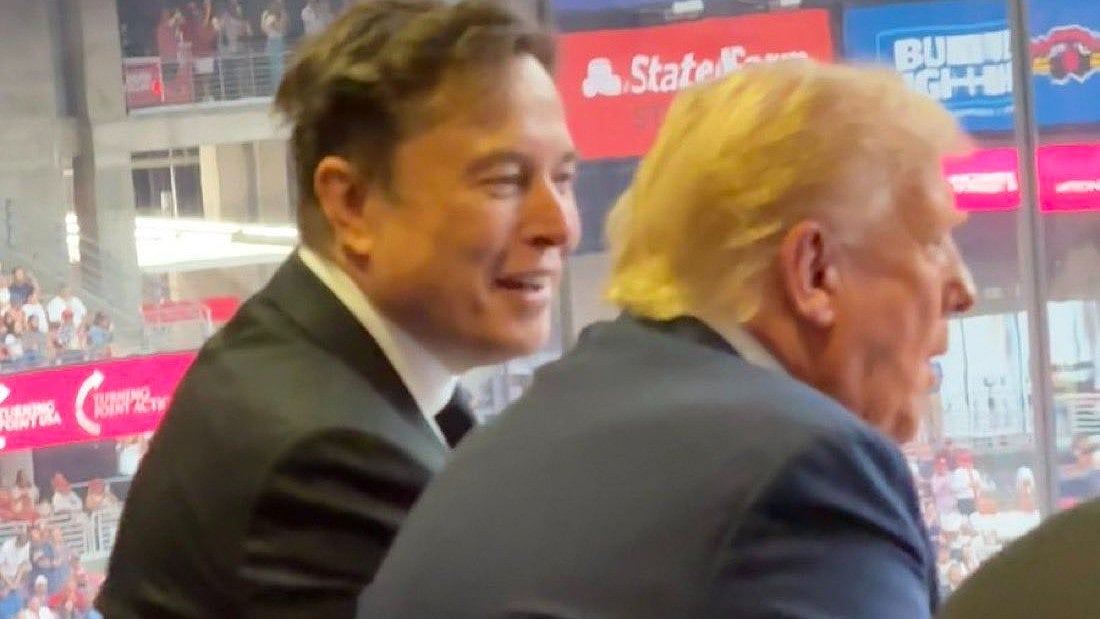World
Elon Musk credits H-1B visas for SpaceX, Tesla’s rise
While praising the programme’s role in drawing global talent, Musk has openly acknowledged its flaws in the past

In the midst of sweeping shifts in US immigration policy, Elon Musk, the billionaire owner of Tesla and SpaceX, has adopted a more nuanced stance on the H-1B visa programme, a cornerstone of America’s tech ecosystem.
Once a staunch champion of the system that enabled him and scores of other innovators to build transformative companies on American soil, Musk has more recently acknowledged the need for reform in the scheme.
Early in President Donald Trump’s second tenure — and well before the recent imposition of a staggering $100,000 fee on new H-1B visa applications — Musk’s tone had grown measured and reflective.
In December 2024, he admitted that while the programme had been instrumental in attracting global talent and driving innovation, it was not without flaws.
Describing the H-1B system as “broken”, Musk underscored that it requires thoughtful restructuring to continue serving both the nation and the countless skilled professionals who contribute to America’s technological prowess.
However, at the same time, Musk was aggressive in crediting the H1B visa with facilitating the presence of himself and others like him in America, people who built companies such as SpaceX, Tesla and "hundreds of others that made America strong".
Published: undefined
The newly introduced USD 100,000 H-1B visa fee will apply only to new applications, leaving renewals and existing visas unaffected. Exemptions are made for applicants in healthcare and engineering sectors, and the US secretary of homeland security retains discretionary authority to waive the fee for cases deemed to be in the national interest.
Elon Musk’s perspective on the H-1B programme has evolved considerably, mirroring both his personal journey and the shifting debate within the US tech industry.
Early in his career, Musk credited the H-1B system for enabling his own immigration to the United States and for supplying the critical talent that helped build companies such as SpaceX and Tesla.
In a widely shared post in December 2024, he wrote, “The reason I’m in America along with so many critical people who built SpaceX, Tesla and hundreds of other companies that made America strong is because of H1B,” vowing at the time to vigorously defend the programme.
Yet even as he celebrated its role in driving innovation, Musk soon began to flag structural flaws. He called for major reforms such as higher minimum salary requirements and annual costs for employers through measures aimed at encouraging the recruitment of domestic talent over cheaper foreign hires. By mid-2025, his language had hardened, describing the programme as “broken” and in need of a fundamental overhaul.
This nuanced but increasingly critical stance has resurfaced as Washington moves to impose the unprecedented USD 100,000 fee on new H-1B applications. The sweeping change has reignited industry-wide concerns over America’s ability to attract global talent, but Musk has so far remained publicly silent on the fee hike.
His earlier, sometimes contradictory comments, spanning praise, reform proposals and sharp criticism, are once again being debated across Silicon Valley, underscoring the tension between his recognition of the programme’s value and his insistence on fixing its weaknesses.
Musk’s evolving outlook encapsulates the crossroads where innovation meets policy. It serves as a reminder that the future of American technology depends not only on visionary entrepreneurs but also on immigration systems that are fair, functional and forward-looking systems capable of protecting national interests without stifling the flow of talent that fuels the country’s technological edge.
Published: undefined
Follow us on: Facebook, Twitter, Google News, Instagram
Join our official telegram channel (@nationalherald) and stay updated with the latest headlines
Published: undefined